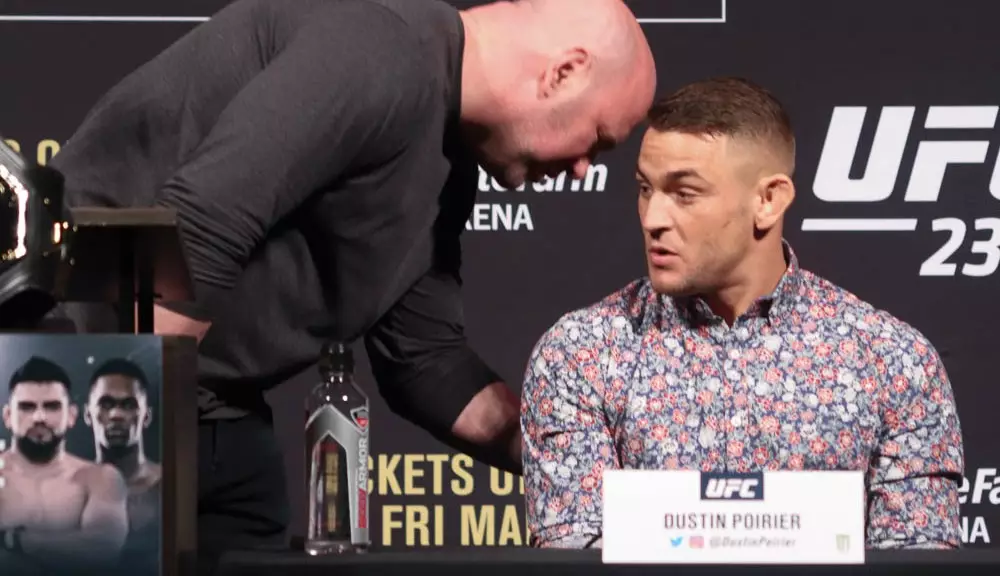Dustin Poirier has become a staple in the UFC’s lightweight division, heralded for both his tenacity in the octagon and his sportsmanship outside of it. Poirier’s professional journey reflects the ambivalence many fighters face about retirement and the end of their competitive careers. Despite recently experiencing a setback in his bid for the lightweight championship against Islam Makhachev at UFC 302, Poirier remains hopeful about his future. In the aftermath of this defeat, Poirier revealed that he envisions one or two more fights, ideally culminating in a farewell bout in his home state of Louisiana. The mere notion of ending his career in familiar territory resonates deeply with fans and fighters alike, underscoring the emotional ties athletes have with their roots.
UFC President Dana White recognizes Poirier’s enduring potential, comparing his recent performances with his historical bouts. During a press conference, White articulated his belief that even after losing to Makhachev, Poirier is far from done. He recalled Poirier’s striking performance against Benoit Saint Denis at UFC 299, wherein Poirier showcased his tactical prowess and knockout power. White’s words serve as a reminder that fighters can redefine their narratives at any moment, a reality that many sports fans sometimes overlook. Moreover, the yearning for competition often lingers long after a fighter has tasted defeat. Poirier’s case exemplifies how a talented athlete can remain relevant for years, constantly adapting and evolving within an ever-changing sport.
While it’s true that Poirier has not secured the undisputed championship title, his achievements illustrate a different kind of success. Capturing the interim lightweight title in 2019 is no small feat, and his victories over legendary fighters—such as Max Holloway, Conor McGregor, and Justin Gaethje—only serve to solidify his standing among the all-time greats. Each of these bouts has contributed richly to MMA history, encapsulating the fierce competition and resilience that define the lightweight division. For Poirier, legacy often transcends titles, and his capacity to engage the audience and inspire fellow fighters is a testament to his influence on the sport.
As Poirier contemplates his next moves, the question of whether he should continue fighting is multidimensional. It ultimately falls on him—a decision that carries both personal and professional weight. Many fighters go through similar deliberations, weighing their desire to compete against the risks associated with the sport. White’s observations on fighters’ second careers suggest that the trajectory post-fighting can be fruitful, urging fighters to consider life beyond the octagon. For Dustin Poirier, the future holds potential not just for further battles but also for avenues in business, commentary, or philanthropy, should he choose to walk away from the fighter’s life.
The narrative surrounding Dustin Poirier is still being written, and the pages ahead promise to be filled with dynamic developments, both inside and outside the UFC octagon. His indelible impact on mixed martial arts will continue, irrespective of the number of fights left to be had.

